MARRIAGE FIGURE ALSO DROPS
입력 2021.08.26 (15:35)
수정 2021.08.26 (16:46)
읽어주기 기능은 크롬기반의
브라우저에서만 사용하실 수 있습니다.
[Anchor Lead]
There were a record low number of marriages in Korea in the first half of this year. Koreans were not getting married as much as before but the decline became faster as people put off their weddings amid the pandemic. Concerns mount as fewer marriages could lead to an even lower birthrate in the long run.
[Pkg]
This woman in her 20s, staging a single-person protest, is a bride-to-be. She came out in protest of the current disease control measures that limits the total guests allowed at a wedding at 49.
[Soundbite] (Bride-to-be in her 20s) : "Department stores or supermarkets have just started the QR entry system and have no capacity restrictions, but weddings do. The government issued such an unfair regulation."
An increasing number of people are postponing their weddings because of such guest capacity restrictions or worsening financial conditions due to the pandemic. The number of marriages in Korea has been on a decline since 2012, but this trend has worsened to cause what's dubbed the “marriage cliff” phenomenon. The number of marriages in the first half of this year fell to under 100,000, the lowest since 1981 when relevant data was first documented. In a country where nearly 100% of childbirths take place after people get married, fewer marriages will very likely lead to a lower birthrate.
[Soundbite] (Bride-to-be in her mid-30s) : "Most plans to start families are made by married couples in Korea. That's the norm. If weddings are postponed, plans to have children will also be postponed."
[Soundbite] (Bride-to-be who postponed wedding(VOICE MODIFIED)) : "I was planning on having two children. But now that I don’t know what's going to happen with my wedding, I'm thinking, maybe I could have just one."
Even married couples are hesitant about having babies because of the pandemic. A survey found about three out of ten married women stating that COVID-19 negatively affected their intention or plans to have a baby. Experts are concerned that at this pace, Korea’s already dismal birthrate is going to be lowered even further in the next two to three years.
There were a record low number of marriages in Korea in the first half of this year. Koreans were not getting married as much as before but the decline became faster as people put off their weddings amid the pandemic. Concerns mount as fewer marriages could lead to an even lower birthrate in the long run.
[Pkg]
This woman in her 20s, staging a single-person protest, is a bride-to-be. She came out in protest of the current disease control measures that limits the total guests allowed at a wedding at 49.
[Soundbite] (Bride-to-be in her 20s) : "Department stores or supermarkets have just started the QR entry system and have no capacity restrictions, but weddings do. The government issued such an unfair regulation."
An increasing number of people are postponing their weddings because of such guest capacity restrictions or worsening financial conditions due to the pandemic. The number of marriages in Korea has been on a decline since 2012, but this trend has worsened to cause what's dubbed the “marriage cliff” phenomenon. The number of marriages in the first half of this year fell to under 100,000, the lowest since 1981 when relevant data was first documented. In a country where nearly 100% of childbirths take place after people get married, fewer marriages will very likely lead to a lower birthrate.
[Soundbite] (Bride-to-be in her mid-30s) : "Most plans to start families are made by married couples in Korea. That's the norm. If weddings are postponed, plans to have children will also be postponed."
[Soundbite] (Bride-to-be who postponed wedding(VOICE MODIFIED)) : "I was planning on having two children. But now that I don’t know what's going to happen with my wedding, I'm thinking, maybe I could have just one."
Even married couples are hesitant about having babies because of the pandemic. A survey found about three out of ten married women stating that COVID-19 negatively affected their intention or plans to have a baby. Experts are concerned that at this pace, Korea’s already dismal birthrate is going to be lowered even further in the next two to three years.
■ 제보하기
▷ 카카오톡 : 'KBS제보' 검색, 채널 추가
▷ 전화 : 02-781-1234, 4444
▷ 이메일 : kbs1234@kbs.co.kr
▷ 유튜브, 네이버, 카카오에서도 KBS뉴스를 구독해주세요!
- MARRIAGE FIGURE ALSO DROPS
-
- 입력 2021-08-26 15:35:23
- 수정2021-08-26 16:46:07
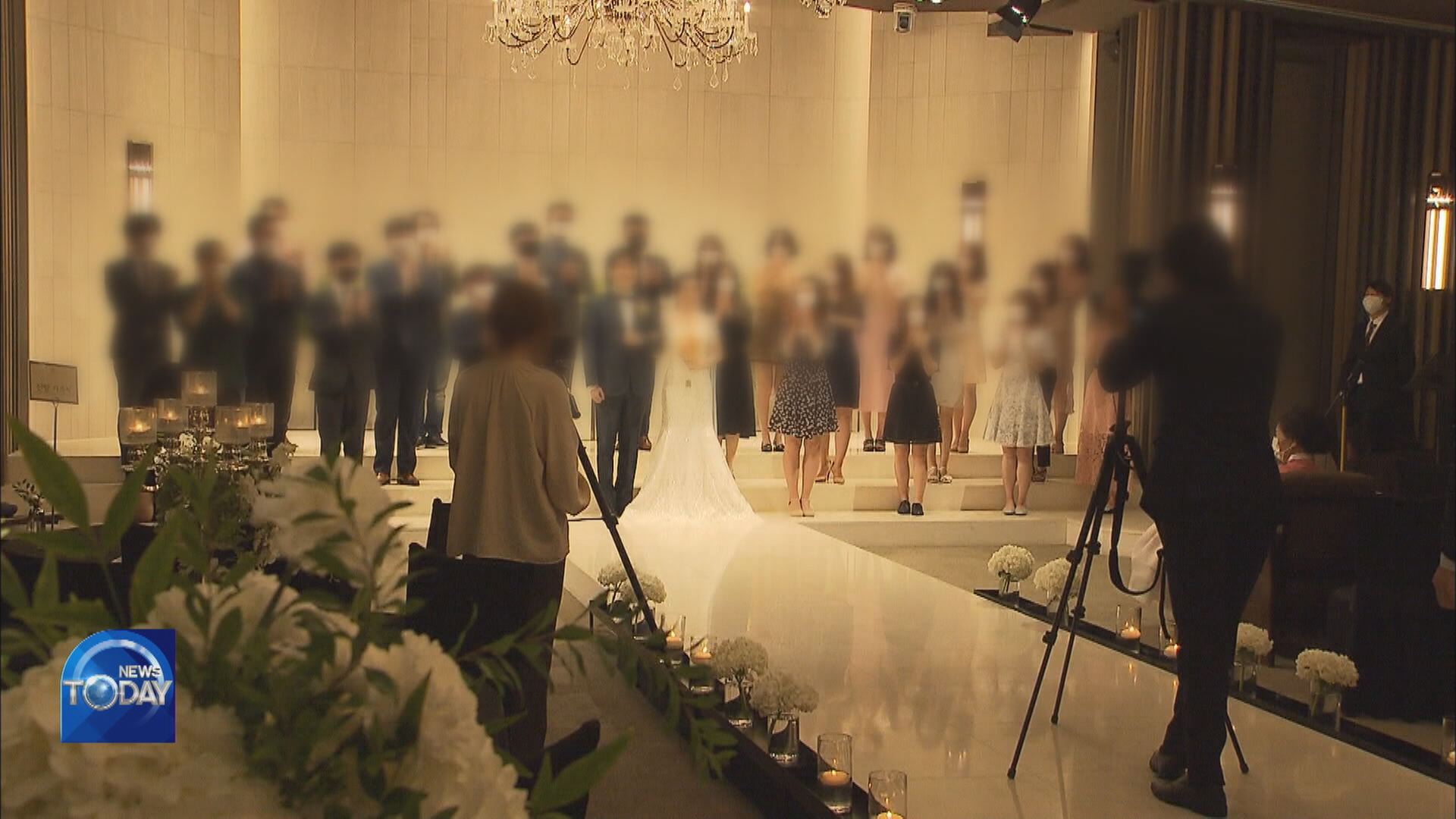
[Anchor Lead]
There were a record low number of marriages in Korea in the first half of this year. Koreans were not getting married as much as before but the decline became faster as people put off their weddings amid the pandemic. Concerns mount as fewer marriages could lead to an even lower birthrate in the long run.
[Pkg]
This woman in her 20s, staging a single-person protest, is a bride-to-be. She came out in protest of the current disease control measures that limits the total guests allowed at a wedding at 49.
[Soundbite] (Bride-to-be in her 20s) : "Department stores or supermarkets have just started the QR entry system and have no capacity restrictions, but weddings do. The government issued such an unfair regulation."
An increasing number of people are postponing their weddings because of such guest capacity restrictions or worsening financial conditions due to the pandemic. The number of marriages in Korea has been on a decline since 2012, but this trend has worsened to cause what's dubbed the “marriage cliff” phenomenon. The number of marriages in the first half of this year fell to under 100,000, the lowest since 1981 when relevant data was first documented. In a country where nearly 100% of childbirths take place after people get married, fewer marriages will very likely lead to a lower birthrate.
[Soundbite] (Bride-to-be in her mid-30s) : "Most plans to start families are made by married couples in Korea. That's the norm. If weddings are postponed, plans to have children will also be postponed."
[Soundbite] (Bride-to-be who postponed wedding(VOICE MODIFIED)) : "I was planning on having two children. But now that I don’t know what's going to happen with my wedding, I'm thinking, maybe I could have just one."
Even married couples are hesitant about having babies because of the pandemic. A survey found about three out of ten married women stating that COVID-19 negatively affected their intention or plans to have a baby. Experts are concerned that at this pace, Korea’s already dismal birthrate is going to be lowered even further in the next two to three years.
There were a record low number of marriages in Korea in the first half of this year. Koreans were not getting married as much as before but the decline became faster as people put off their weddings amid the pandemic. Concerns mount as fewer marriages could lead to an even lower birthrate in the long run.
[Pkg]
This woman in her 20s, staging a single-person protest, is a bride-to-be. She came out in protest of the current disease control measures that limits the total guests allowed at a wedding at 49.
[Soundbite] (Bride-to-be in her 20s) : "Department stores or supermarkets have just started the QR entry system and have no capacity restrictions, but weddings do. The government issued such an unfair regulation."
An increasing number of people are postponing their weddings because of such guest capacity restrictions or worsening financial conditions due to the pandemic. The number of marriages in Korea has been on a decline since 2012, but this trend has worsened to cause what's dubbed the “marriage cliff” phenomenon. The number of marriages in the first half of this year fell to under 100,000, the lowest since 1981 when relevant data was first documented. In a country where nearly 100% of childbirths take place after people get married, fewer marriages will very likely lead to a lower birthrate.
[Soundbite] (Bride-to-be in her mid-30s) : "Most plans to start families are made by married couples in Korea. That's the norm. If weddings are postponed, plans to have children will also be postponed."
[Soundbite] (Bride-to-be who postponed wedding(VOICE MODIFIED)) : "I was planning on having two children. But now that I don’t know what's going to happen with my wedding, I'm thinking, maybe I could have just one."
Even married couples are hesitant about having babies because of the pandemic. A survey found about three out of ten married women stating that COVID-19 negatively affected their intention or plans to have a baby. Experts are concerned that at this pace, Korea’s already dismal birthrate is going to be lowered even further in the next two to three years.
이 기사가 좋으셨다면
-
좋아요
0
-
응원해요
0
-
후속 원해요
0










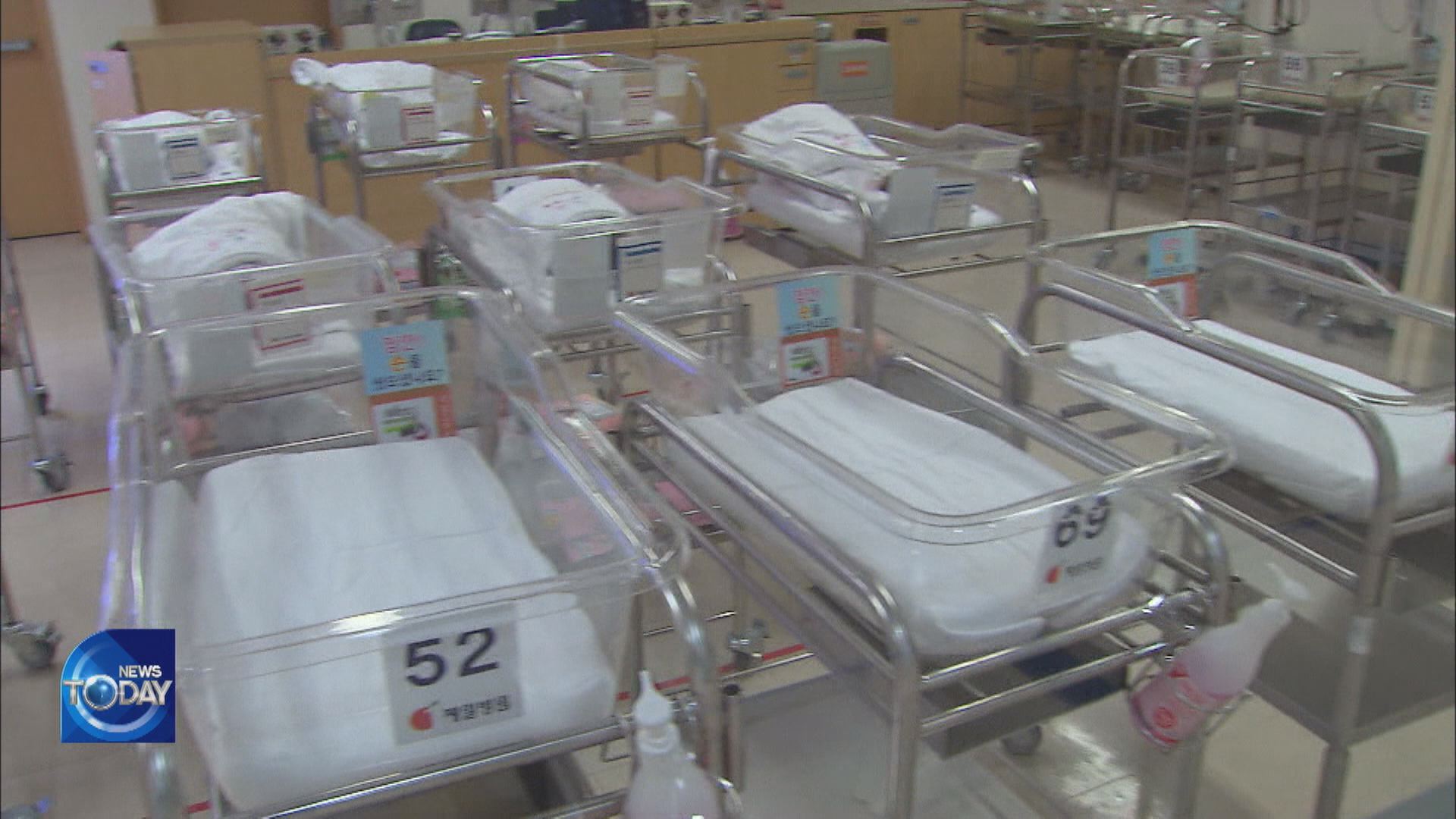
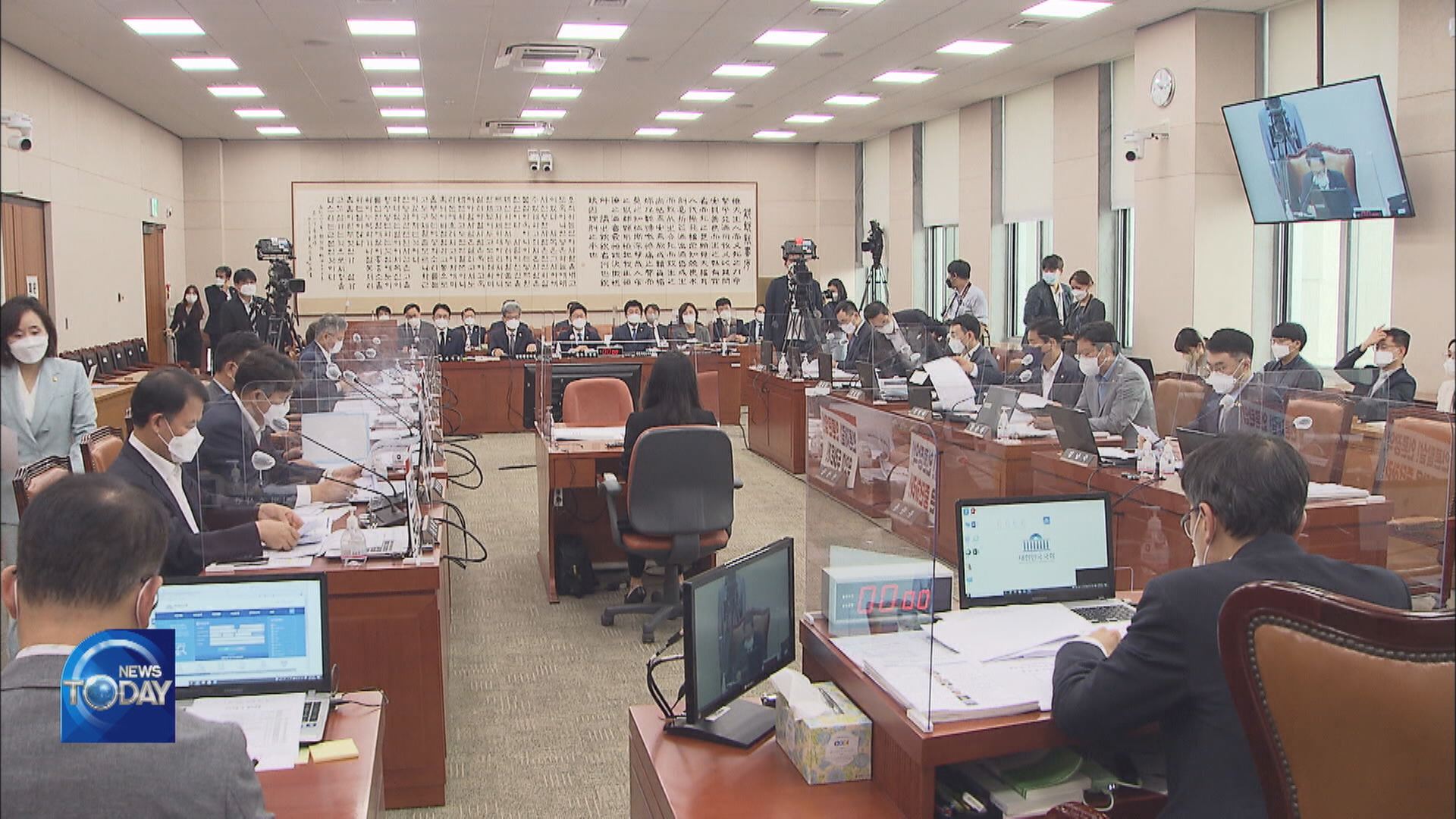
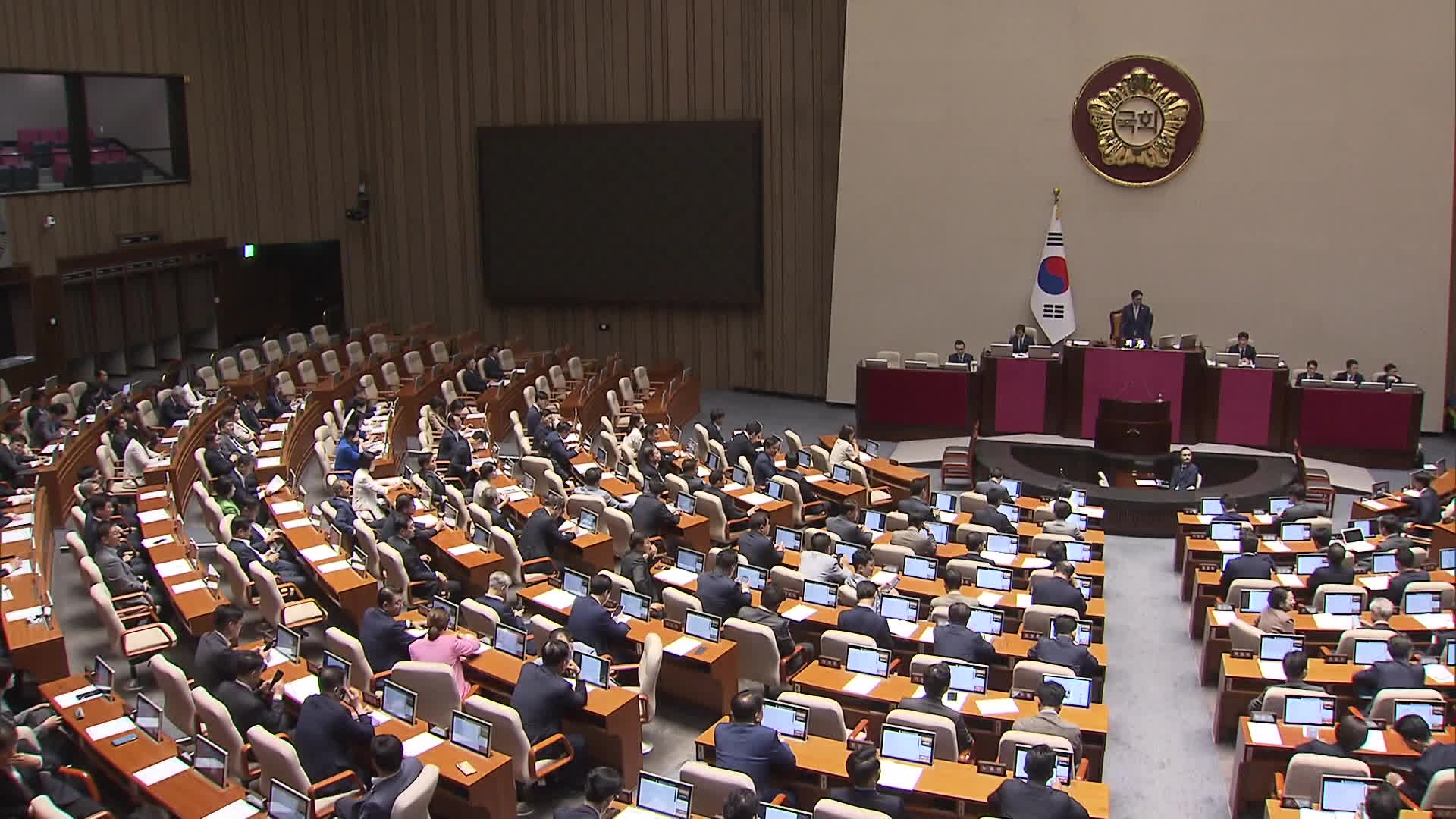
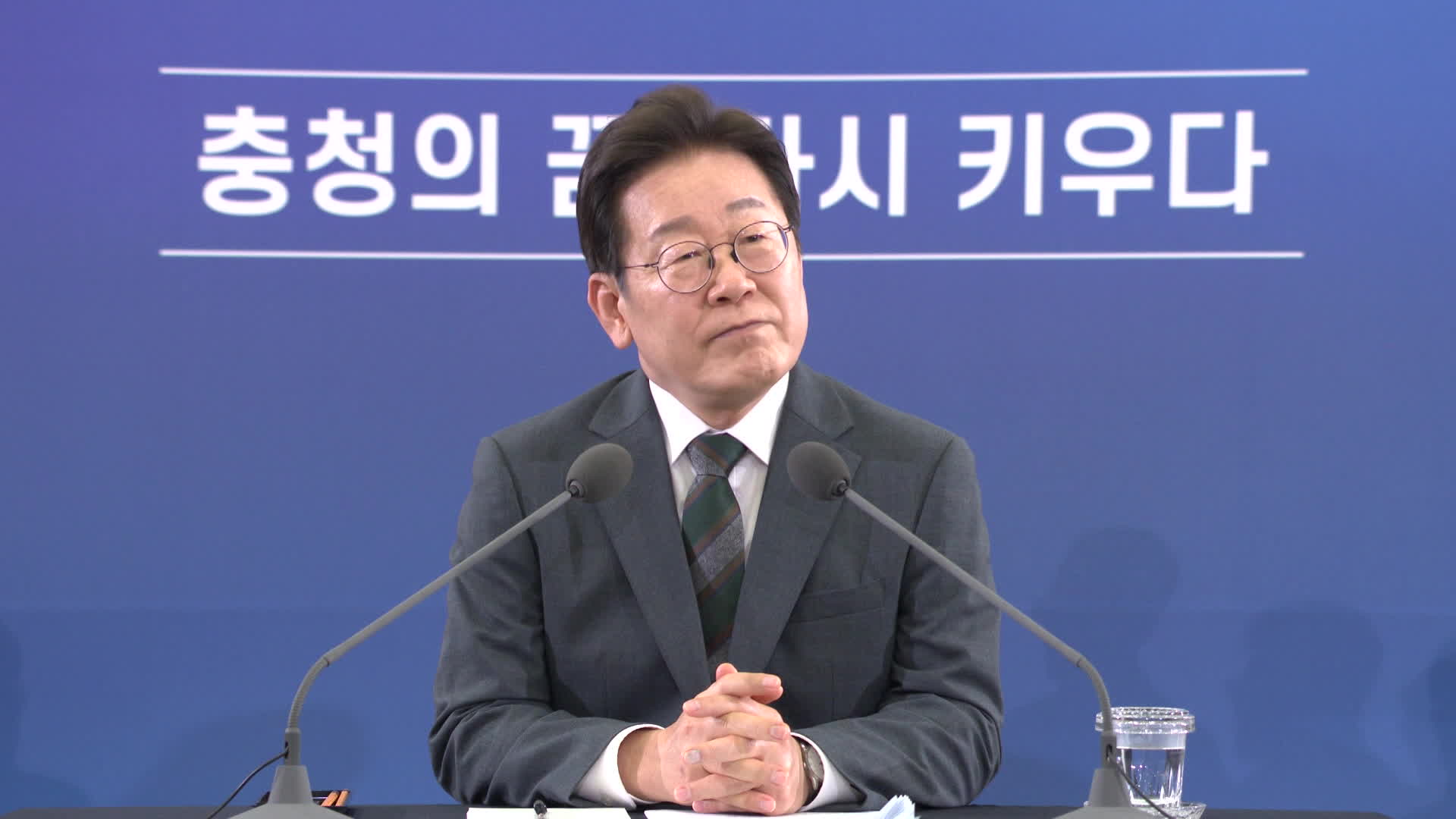

![[속보] 수도권 제1순환고속도로 소래터널서 차량 화재…“인근 통제 중”](/data/layer/904/2025/07/20250704_cu8wRc.jpg)

이 기사에 대한 의견을 남겨주세요.